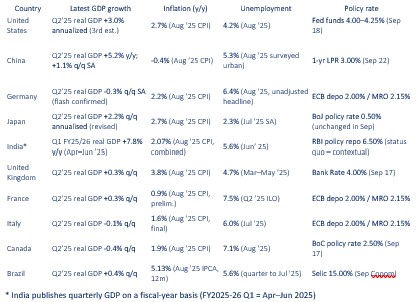IPEF Makes Excluded China Angry
- Mark Williams

- Jul 26, 2022
- 2 min read
On Tuesday 27 July, the Indo Pacific Economic Framework for Prosperity (IPEF) meets via video conference, co-hosted by US Trade Representative Katherine Tai and Commerce Secretary Gina Raimondo.
IPEF was launched by President Biden In May 2022 with four wide-ranging aims – fair and resilient trade; supply chain resilience; infrastructure and clean energy; and tax and corruption cooperation. IPEF has 14 member nations: Australia , Brunei, Fiji, India, Indonesia, Japan, South Korea, Malaysia, New Zealand, Philippines, Singapore, Thailand, the US and Vietnam and openly invites other nations to join.
IPEF has made China very angry, not least because it says it is excluded from joining and sees IPEF as the US “selfishly using member countries as vassals” as the state mouthpiece The Global Times wrote on 26 July. He Weiwen, an executive council member of the China Society for World Trade Organization Studies told The Global Times, “it has become increasingly apparent that the IPEF has nothing to do with the economy, but is purely a geopolitical strategy to contain China but is dressed up as an economic framework…The US' IPEF aims to engage countries in the region to marginalize China in economic fields. But Washington will be disappointed because any economic framework in the Asia-Pacific without China won't work.”
The Global Times also reported Wang Huiyao, president of think tank the Center for China and Globalization as saying that it is absurd that China, the Asia-Pacific's largest economy and second largest in the world, is not invited to participate in a regional economic initiative.
IPEF is further evidence of economic decoupling, with the US leading one camp and China the other. Michael Shoebridge, director of defence, strategy and national security at think-tank the Australian Strategic Policy Institute, says two decoupled energy blocs are already emerging, with China and Russia on one side, and Europe, North America and the Indo-Pacific democracies on the other. “Decoupling is real and growing. China and US decoupling has now been joined by EU-China decoupling, and we’re facing a common strategic challenge of Russia and China that unifies European actors with Indo-Pacific actors,” he told the FT on 20 May 2022. “The decoupling started in high technology, but it’s broadening now. I think it’s going to broaden to energy decoupling.”
Charles Freeman, ex-US diplomat, now senior fellow at Brown University’s Watson Institute for International and Public Affairs, thinks the US is wrong to exclude China from international bodies. "The problem is that the American emphasis at the moment is on competition, confrontation and on cooperation only on a selective basis. The priorities are wrong. The emphasis should be on cooperation where we have common interests. For example, climate change, security issues in Asia, international regimes that facilitate trade and investment. I fear that, as has been the case elsewhere with our foreign policy misadventures, we are not dealing with China but with the China of our imaginations, not the China that exists...It’s very unfortunate because it basically produces conflict where there was cooperation. It disrupts trade. It menaces supply chains and so forth"
Decoupling is a key strategic risk for shipping investors, as fully covered in our recent report, Five Tiers of Transition. Well worth taking time to read!



Comments